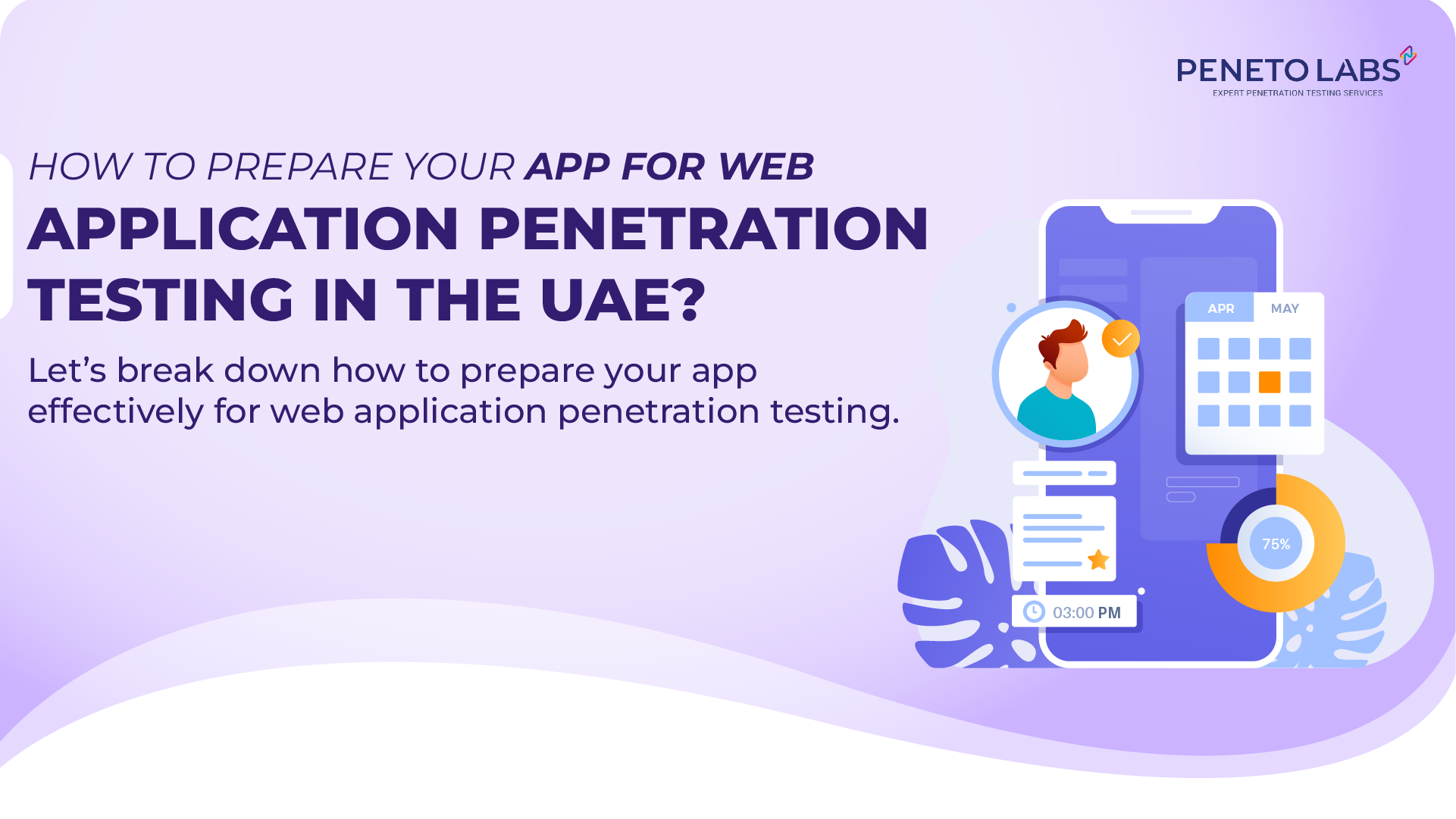UAE businesses rely heavily on web applications for operations, sales, and customer engagement. But with rising cyber threats, especially targeting the Middle East, securing your web app is no longer optional. That’s where Web Application Penetration Testing (WAPT) becomes essential.
If your business is planning a web app penetration test in the UAE, preparation is the key to getting accurate results and ensuring your system’s safety. Let’s break down how to prepare your app effectively for web application penetration testing.
Understanding Web Application Penetration Testing
Web application penetration testing (or WAPT) is a controlled, simulated cyberattack that identifies security vulnerabilities in your web app before hackers can exploit them. It helps businesses detect risks such as:
- SQL Injection
- Cross-Site Scripting (XSS)
- Authentication flaws
- Misconfigured servers
- Broken access controls
By finding these weaknesses early, your company can prevent data breaches, ensure compliance, and maintain customer trust.
Why Preparation Matters Before a Web Application Penetration Testing?
Many UAE businesses rush into a pentest without proper preparation, resulting in incomplete findings or test disruptions. Preparing your app helps:
- Gain maximum value from the assessment.
- Ensure smooth testing without downtime.
- Give testers full access to target assets.
- Reduce false positives
Preparation aligns your business objectives with testing scope, making your investment worthwhile.
How to Prepare for Web App Penetration Testing in the UAE (Step-by-Step)?
Here are the ways by which you can prepare your web application for Web Application Penetration Testing:
1. Define Your Testing Objectives
Before you begin, clearly define why you need the test. Are you looking for compliance with UAE’s cybersecurity regulations or protecting sensitive customer data? This clarity helps your testing partner align their approach to your business goals.
2. Choose the Right Testing Scope
List all your web assets, such as:
- Web portals
- Admin dashboards
- APIs
- Login systems
Mark which ones are in-scope, and which are not. If your business has multiple apps or environments (development, staging, production), specify where the test will happen.
3. Ensure a Stable and Updated Environment
Your testing environment should mirror your live system as closely as possible.
Before testing begins:
- Apply necessary software updates.
- Remove test or dummy data.
- Backup critical files and databases.
- Disable unnecessary firewalls that may block testing tools temporarily.
- A stable environment ensures accurate vulnerability detection.
4. Share Complete Technical Documentation
Provide your pentesting vendor with documentation such as:
- Application architecture
- API endpoints and credentials (if applicable)
- Access details for user roles
- Data flow diagrams
This helps testers understand your app’s structure and perform a deeper, more efficient assessment.
5. Create Test Accounts with Varied Access Levels
Provide test accounts with different roles, for example, admin, user, and guest accounts. This allows testers to simulate real-world attacks on various access levels and uncover hidden vulnerabilities in privilege handling.
6. Inform Your Internal Teams
Notify your IT, security, and development teams about the upcoming test. This ensures they don’t mistake simulated attacks for real threats and disrupt the process. A prepared team leads to smoother coordination and faster remediation later.
7. Plan for Post-Testing Actions
Once testing ends, you’ll receive a detailed VAPT report highlighting vulnerabilities and recommendations. Before the test begins, decide:
- Who will review the report?
- Who will handle fixes?
- How will validation and retesting be done?
Having a remediation plan saves time and ensures all vulnerabilities are patched correctly.
Working with a Pen Testing Partner for Web Application Penetration Testing in the UAE
When choosing a penetration testing vendor in the UAE, look for one that follows OWASP standards and holds CERT-In empanelment or international security certifications. These vendors follow global best practices and maintain data confidentiality during the testing process. A trusted vendor not only identifies weaknesses but also helps your business build a long-term security strategy.
About Peneto Labs (Peneto Cyber Risk Review LLC)
Peneto Labs, officially known as Peneto Cyber Risk Review LLC in Dubai, is a leading cybersecurity firm specializing in web application penetration testing, vulnerability assessments, and security audits across Abu Dhabi, Dubai, Sharjah, Ajman, Umm Al Quwain, Ras Al Khaimah, and Fujairah in UAE. The company helps organizations proactively identify, assess, and mitigate risks in their digital infrastructure before attackers can exploit them.
Peneto Labs adheres to the OWASP Testing Guide and other global security frameworks such as NIST to ensure thorough and compliant testing. Our team of certified security experts uses both automated tools and advanced manual testing techniques to uncover hidden vulnerabilities in web and mobile applications.
What sets Peneto Labs apart is our business-driven approach to cybersecurity. Rather than offering a one-time pentest, the company partners with clients to develop a long-term security roadmap, helping businesses strengthen their overall resilience against evolving cyber threats.
With a strong presence in Dubai’s fast-growing digital ecosystem, Peneto Cyber Risk Review LLC has become a trusted partner for enterprises, government entities, and startups seeking reliable penetration testing and compliance-driven security assessments.
Final Thoughts
Preparing your app for web application penetration testing is just as important as the test itself. UAE businesses, whether startups, e-commerce platforms, or financial institutions must treat this process as a proactive security measure, not a formality. By defining your scope, ensuring documentation, and coordinating with a reliable testing partner, you ensure your web application is secure, compliant, and resilient against real-world cyber threats. A well-prepared app delivers accurate pentesting results, saving time, reducing risks, and protecting your business reputation. Liked this article? Kindly visit us again for more information on Web Application Penetration Testing.
